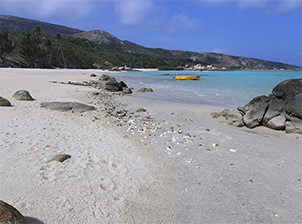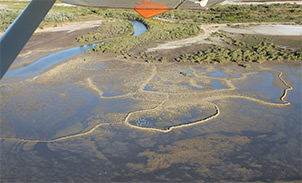CASE Postgraduate Study and Research Social Science research Research Projects The Deep History of Sea Country
The Deep History of Sea Country
- Aboriginal and Torres Strait Islander in Marine Science
- Courses
- Future Students
- Current Students
- Research and Teaching
- Partners and Community
- About JCU
- Reputation and Experience
- Celebrating 50 Years
- Academy
- Anthropological Laboratory for Tropical Audiovisual Research (ALTAR)
- Anton Breinl Research Centre
- Agriculture Technology and Adoption Centre (AgTAC)
- Living on Campus
- How to apply
- Advanced Analytical Centre
- Alumni
- AMHHEC
- Aquaculture Solutions
- AusAsian Mental Health Research Group
- ARCSTA
- Area 61
- Association of Australian University Secretaries
- Australian Lions Stinger Research
- Australian Tropical Herbarium
- Australian Quantum & Classical Transport Physics Group
- Boating and Diving
- JCU-CSIRO Partnership
- Employability Edge
- Clinical Psychedelic Research Lab
- Centre for Tropical Biosecurity
- Career Ready Plan
- Careers at JCU
- Careers and Employability
- Chancellery
- Centre for Tropical Bioinformatics and Molecular Biology
- CITBA
- CMT
- CASE
- College of Business, Law and Governance
- College of Healthcare Sciences
- College of Medicine and Dentistry
- College of Science and Engineering
- CPHMVS
- Centre for Disaster Solutions
- CSTFA
- Cyber Security Hub
- Cyclone Testing Station
- The Centre for Disaster Studies
- Daintree Rainforest Observatory
- Defence
- Discover Nature at JCU
- Research Division
- Services and Resources Division
- Education Division
- Elite Athletes
- eResearch
- Environmental Research Complex [ERC]
- Estate
- Fletcherview
- Foundation for Australian Literary Studies
- Gender Equity Action and Research
- General Practice and Rural Medicine
- JCU Orientation
- Give to JCU
- Governance
- Art of Academic Writing
- Art of Academic Editing
- Graduate Research School
- Graduation
- Indigenous Education and Research Centre
- Indigenous Engagement
- Indigenous Legal Needs Project
- Inherent Requirements
- IsoTropics Geochemistry Lab
- IT Services
- International Students
- Research and Innovation Services
- JCU Eduquarium
- JCU Heroes Programs
- JCU Webinars
- JCU Events
- JCU Global Experience
- JCU Ideas Lab
- JCU Job Ready
- JCU Motorsports
- JCU Prizes
- JCU Sport
- JCU Turtle Health Research
- Language and Culture Research Centre
- CEE
- LearnJCU
- Library
- Mabo Decision: 30 years on
- MARF
- Marine Geophysics Laboratory
- New students
- Off-Campus Students
- Office of the Vice Chancellor and President
- Virtual Open Day
- Orpheus
- Open Day
- Outstanding Alumni
- Parents and Partners
- Pathways to university
- Pharmacy Full Scope
- Planning for your future
- Placements
- Policy
- PAHL
- Publications
- Professional Experience Placement
- Queensland Research Centre for Peripheral Vascular Disease
- Rapid Assessment Unit
- RDIM
- Researcher Development Portal
- Roderick Centre for Australian Literature and Creative Writing
- Safety and Wellbeing
- Scholarships
- Contextual Science for Tropical Coastal Ecosystems
- Staff
- State of the Tropics
- Strategic Procurement
- Student Equity and Wellbeing
- Student profiles
- SWIRLnet
- TARL
- TESS
- TREAD
- TropEco for Staff and Students
- TQ Maths Hub
- TUDLab
- Unicare Centre and Unicampus Kids
- UAV
- VAVS Home
- Work Health and Safety
- WHOCC for Vector-borne & NTDs
- Media
- Copyright and Terms of Use
- Australian Institute of Tropical Health & Medicine
- Pay review
The Deep History of Sea Country: Climate, Sea Level and Culture
Submerged landscape archaeology is an under-researched field in Australia and represents a major opportunity to address knowledge gaps in Australian archaeology.
| Duration: | March 2017 – ongoing |
| Funding: | With financial support from the Australian Research Council |
| Academic Group: | Social Sciences |
| Key Words: | Archaeology, Maritime Archaeology, Submerged Landscapes, Aboriginal Australia |
Project Description
Nearly one-third of Australia’s landmass was drowned after the last ice age and generations of people were displaced by sea-level change. This project will impact heritage and environmental management and underpin a future for growth in the marine heritage sector with benefits to Indigenous, business and research communities.
This pioneering, multi-disciplinary study of submerged landscape archaeology in Australia is designed to investigate the records of the now-submerged Pilbara coast (spanning 50,000 to 7000 years ago). Information from drowned contexts will help address critical debates in Australian prehistory relating to past sea-level rise, population resilience, mobility, and diet. The project integrates cultural and environmental studies and contributes a unique southern hemisphere insight into world prehistory through material analysis and an adaptation of method from the world’s only confirmed submarine middens. A suite of cutting edge marine and aerial survey techniques will be developed to investigate physical and cultural submerged landscapes.
Project Partners
- James Cook University
- Flinders University
- The University of Western Australia
- Curtin University of Technology
- University of York
- Aarhus Universitet
Project Team
- Sean Ulm (James Cook University)
- Jonathan Benjamin (Flinders University)
- Ingrid Ward (Flinders University)
- Peter Veth (The University of Western Australia)
- Jorg Hacker and Michael O'Leary (Curtin University of Technology)
- Geoffrey Bailey (University of York)
- Mads Holst (Aarhus Universitet)
Key contact: Chief Investigator, Professor Sean Ulm at sean.ulm@jcu.edu.au

